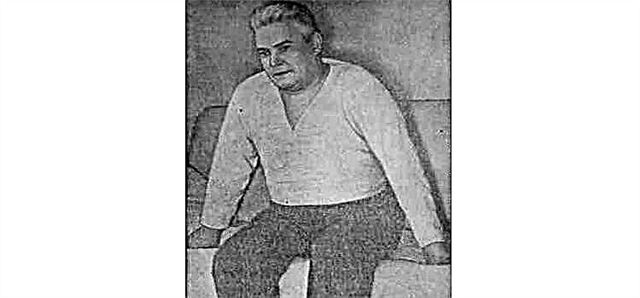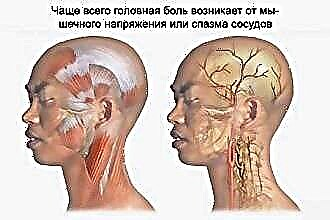Often, the parents of a conscript undergoing examination are interested in: if a guy has tachycardia, can such a diagnosis become an obstacle to entering a military school or going through military service. Let's try to figure out in detail what doctors mean by this term, how a disease can be “useful” if you don’t want to serve, or “harm” if, on the contrary, you dream of a military career. In other words, we will try to answer the question - with tachycardia they are taken into the army or not.
Eligibility Criteria for an Inductee with Tachycardia
You can talk about tachycardia if your heart rate (HR) is more than 90 beats per minute in a supine position and 100 - while sitting or standing. The condition is not an independent diagnosis, sometimes it is considered a variant of the norm.
Types of tachycardias and their features
Heart palpitations can occur in an absolutely healthy person after a few cups of coffee, intense physical activity, or with intense excitement. Doctors consider such conditions to be physiological, and with such tachycardia they are taken into the army.
Pathological cardiac arrhythmias are distinguished:
- For a reason: caused by cardiac diseases and non-cardiac - as a complication of the pathology of other organs and systems (thyroid gland, with a lack of oxygen, low levels of potassium in the blood, hypoglycemia, anemia).
- In appearance: paroxysmal (suddenly starting and just as abruptly passing) and non-paroxysmal (constant, sometimes alternating with a normal or moderate rhythm).
- In form (depends on the localization of the focus of disturbance of the excitability of the conducting pathways of the myocardium): supraventricular (supraventricular) and ventricular.
Tachycardia threatens health and life by the fact that an incorrect rhythm leads to an inadequate release of blood. Myocardial overstretching occurs, and this can cause heart failure. When an arrhythmia is detected in a conscript, the medical commission of the military registration and enlistment office decides strictly individually - whether the young man should be called up or not.
If you want to know everything about tachycardia, we advise you to watch the video below at the link. Causes, symptoms, diagnosis and signs that it is time to see a doctor - about all this in 7 minutes. Happy viewing!
Service Eligibility Criteria
Requirements for the state of health of persons liable for military service are set out in the Decree of the Government of the Russian Federation of 04.07.2013, No. 565, for simplicity we will call it Decree 565. I advise you to carefully read this document. It describes in detail the criteria by which the medical commission determines fitness for military service.
I advise you not to limit yourself to studying only the section of cardiology. The list of diseases of Regulation 565 includes diseases that can cause tachycardia of noncardiac etiology. For example, article 13, which lists diseases of the endocrine system, indicates that if a conscript's heart rate is more than 120 beats per minute, the medical commission considers the issue of assigning him category D or B.
If you have been categorized:
- A or B - you will not be able to avoid service. Category B provides only some restrictions on the type of troops.
- C or D - limitedly suitable and temporarily unsuitable. You may be given a couple of months delay to treat your condition. Perhaps they will not be drafted in peacetime, but they will issue a military ID and put them in the reserve.
- D - the army does not threaten you. A military ID is still issued, but a note is made in it and in your passport that you have contraindications to service.
In Ordinance 565 in the section "Diseases of the circulatory system" you will not find the diagnosis "tachycardia". Carefully review the list of diseases that cause arrhythmias. The table below will make your search easier:
| Disease Schedule Article | Main diagnosis | The type of tachycardia as a complication of the underlying disease | Expiration category |
| 42 | Rheumatism, other rheumatic and non-rheumatic heart diseases | Paroxysmal ventricular tachyarrhythmias | D |
| If the palpitations continue for more than 7 days and resume after a course of antiarrhythmic drugs | D or B | ||
| 44 | Cardiac ischemia | ||
| 45 | Congenital anomalies of the heart and blood vessels | ||
| 47 | Neurocirculatory asthenia | Persistent tachycardia, not corrected by treatment, significantly reducing work capacity | B or C (the medical commission decides individually) |
| 48 | Circulatory dysfunctions after illness, injury, surgical treatment | Tachycardia persists as a complication | D (a decision is made to postpone) |
Sinus tachycardia and the army
This type of rhythm disturbance is most common in young people. The conscripts and their parents mistakenly believe that this diagnosis gives the right to exemption from military service or to an extension. I will try to explain why this is not entirely true. The sinoatrial node is located inside the wall of the right atrium. He is the main pacemaker, the generator of the excitation impulse, due to which the contraction of both the atria and the ventricles occurs.
Sinus is called tachycardia, in which there is no disturbance in the work of the cardiac conduction system. In other words, the body's main pump is functioning correctly, but too quickly. This does not mean that the condition is harmless. A person suffers from "fluttering" inside the chest, shortness of breath, dizziness, impaired performance.
Mandatory medical supervision and adequate therapy are required. But Resolution 565 does not distinguish the diagnosis of sinus tachycardia. Therefore, the number of heart beats per minute matters. If your heart rate exceeds 120, lasts continuously for more than a week, does not lend itself to drug correction - you have the right to count on category D, B or G.
Mitral valve prolapse and military service
A second diagnosis that is of interest for a postponement or release from the army is mitral valve prolapse (MVP). The condition is a bulging of its valve at the time of systole into the atrial cavity. It is considered a clinical and anatomical syndrome. Perhaps, as a congenital pathology, and as a result of heart disease.
One of the complications of MVP is constant or transient heart rhythm disturbances.
According to Ordinance 565, you can avoid conscription if your mitral valve prolapse clinic is accompanied by:
- sinus tachycardia more than 120 beats in one minute;
- paroxysmal tachycardia;
- atrial fibrillation or flutter;
- Wolff-Parkinson-White syndrome.
With the first degree of MVP, proceeding without complications, there is no delay. Some conscripts, wanting to get into the elite troops, seek to hide from the medical commission the presence of mitral valve prolapse, which I strongly advise against doing. With excessive physical exertion, a mild MVP can transform into a more severe one and pose a threat to the health and life of a young person.
The procedure for passing the medical commission
The medical commission of the military registration and enlistment office is not engaged in diagnostics. According to Resolution 565, the function of doctors is to assess a person's condition for fitness for military service, and if necessary, send them for further examination or treatment. Therefore, you need to submit all available documents confirming the presence of tachycardia.
Required documents for postponement
The decision on fitness for military service is made on the basis of available diagnoses. You should check with your doctor in advance which disease caused the tachycardia.Before passing the commission, you will be warned about the need to undergo the following diagnostic examinations:
- fluorography or chest x-ray;
- general blood tests, urine tests, antibodies to HIV, markers for the presence of hepatitis B, C;
- ECG.
You must have the results with you. But a single electrocardiogram cannot always confirm the existing tachycardia. It is important to keep extracts from the medical history, advisory opinions, original examinations, ECG tapes.
I also advise you to conduct daily Holter monitoring of the heart rate. If the conscript has had cases of hypertension, stock up on blood pressure holter as well.
For young men with disabilities, Resolution 565 permits an examination in absentia. Parents can bring to the military registration and enlistment office:
- outpatient card;
- a copy of the act of medical and social examination.
Just do not forget, please, to certify the documents with the signature of the head, as well as with the seal of the MSEC bureau.
Be sure to inform your physician and neuropathologist about tachycardia. Do not be alarmed if you are referred for an inpatient examination or treatment. This does not mean that the doctors of the military registration and enlistment office did not believe you. Sometimes additional confirmation of your diagnosis is required.
If it seems to you that the medical commission ignored your complaints, contact an experienced lawyer, consult with your doctor, consult one of the recruit help sites.



